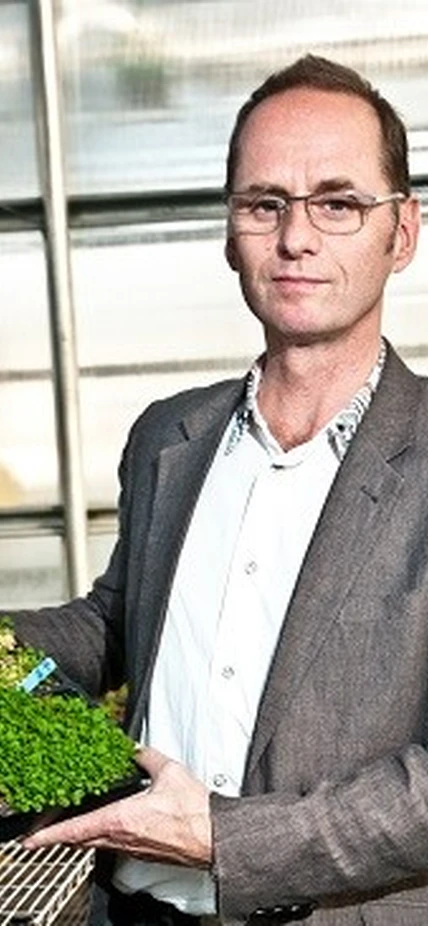Stanford, CA—Wolf B. Frommer, Director of Carnegie’s Department of Plant Biology, has been elected as a member of the German Academy of Sciences, Leopoldina, one of the world’s oldest national academies.
Leopoldina has a membership of about 1,500 outstanding scientists from Germany, Austria, Switzerland, and other nations. The organization is “dedicated to the advancement of science for the benefit of humankind and to the goal of shaping a better future.”
Frommer, who joined Carnegie in 2003 and has been Plant Biology Director since 2007, has had a distinguished career in plant sciences in both Germany and the United States. His work provides the foundation for increasing the yield of crops and bolstering the world’s food supply, and even for understanding the processes of some human diseases, such as diabetes and cancer.
He is well known for his research identifying how nutrients are transported across plant cell membranes. Transport proteins are responsible for moving materials such as sugars, amino acids, and other ions and metabolic products through a cell’s outer membrane, which seals and protects all living cells, to the cell’s interior, where they can fuel growth or initiate a response to stress or activity outside. His work laid the basis for the identification of the function of the human Rhesus factors and, most recently, he discovered a novel class of sugar transporter in humans. Frommer was able to revolutionize the study of these transport proteins by developing sensors capable of spying on a cell’s transportation mechanisms and seeing how they work in real time.
“It’s such an honor to have my work recognized by the National Academy of my native country, which I left 13 years ago to join Carnegie” Frommer said.
Frommer has previously received the Gottfried-Wilhelm-Leibniz Prize, Germany’s highest research award; the Körber Award for European Science; and the The Lawrence Bogorad Award for Excellence in Plant Biology Research. He is also a fellow of the AAAS.
